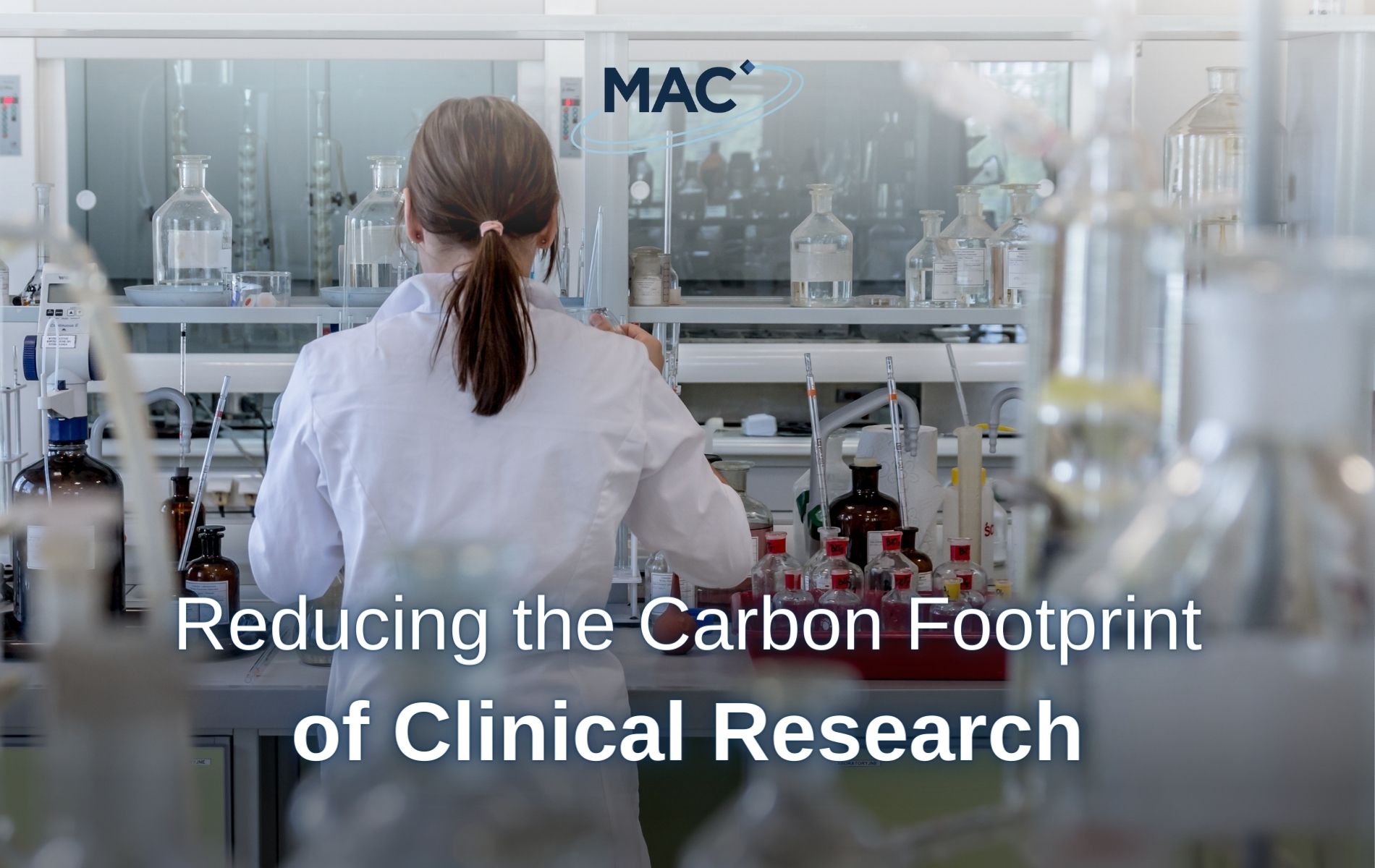Today on Earth Day, it’s crucial to reflect on how various industries impact our planet and what steps can be taken to minimise their environmental footprint. While clinical research plays a vital role in advancing medical science and improving human health, it’s essential to acknowledge its contribution to climate change and explore avenues for reducing its carbon footprint.
What is Clinical Research?
Clinical research encompasses a broad range of activities, from developing new medications to testing medical devices and conducting trials to assess their safety and efficacy. The National Institute for Health and Care Research (NIHR) Network reported that over 6000 clinical trials took place between 2022 and 2023 within England1.
However, these activities often involve significant energy consumption, resource utilisation, and waste generation, all of which contribute to greenhouse gas emissions and environmental degradation, yet clinical research is vital for developing new and improved treatments, and ultimately advancing healthcare.
How can Clinical Research be More Sustainable?
One of the key areas where the clinical research industry can make a positive impact on the environment is through the adoption of sustainable practices. By integrating principles of sustainability into every stage of the research process, from study design to implementation and data analysis, companies can minimize their environmental impact while still achieving their research objectives.
One way that the industry can reduce environmental impacts is by incorporating virtual aspects into clinical trials, something that MAC Clinical Research has supported. By using remote monitoring devices and digital platforms for data collection, researchers can gather information from participants without requiring them to visit a physical location, thereby reducing the environmental impact of transportation. In the UK, 26% of the country’s total emissions are caused by transport, the largest emitting sector of greenhouse gas2.
Other practices can also be incorporated into the implementation of clinical trials such as streamlining supply chains for clinical research materials, for example, medications, lab supplies, and equipment. Reducing packaging and recycling can also help to offset carbon emissions. Furthermore, encouraging researchers to adopt sustainable practices, such as proper waste management, recycling, and responsible chemical use, can minimise the environmental footprint of clinical trials. Here at MAC Clinical Research, all our clinics have suitable recycling bins as well as information on what can and cannot be recycled to help spread awareness.
Also at MAC, we have a dedicated Corporate Social Responsibility Team who are committed to fostering collaboration and knowledge sharing within our company to promote the best practices for sustainability. The team shares resources, tools, and case studies that can help accelerate the adoption of environmentally friendly practices across our own clinical research community.
Challenges to Sustainability in Clinical Research
Achieving sustainability in clinical research, however, is challenging due to factors such as strict regulations and technological adaptations.
While these challenges may seem daunting, they also present opportunities for innovation, collaboration, and transformative change. By embracing these challenges head-on and working collaboratively as an industry, clinical research organisations can overcome barriers to sustainability and pave the way for a more environmentally conscious future.
Taking Part in Clinical Research
While implementing the environmentally conscious measures explored may require upfront investment and organisational change, the long-term benefits for both the environment and public health are undeniable. By prioritizing sustainability and taking proactive steps to reduce their carbon footprint, clinical research organisations can contribute to a healthier planet for future generations while continuing to advance medical science and improve human health.
MAC Clinical Research was recently awarded a bronze medal as part of EcoVadis’ rating of operational sustainability commitments. Our overall score was 58/100 – which is 11 points above industry average3.
If you are interested in finding out more about MAC Clinical Research’s work or taking part in a clinical trial, helping to advance healthcare, you can register for one of MAC’s clinical trials via our current trials webpage.
If you are eligible for one of our clinical trials, you may receive financial reimbursement for your time and commitment. You will also receive travel expenses (if travel to one of our clinics is required) and a full health check-up from our specialist team.
1 National Institute for Health and Care Research – Annual Statistics
2 Department for Transport – Transport and environment statistics: 2023
3 EcoVadis – Ecovadis




